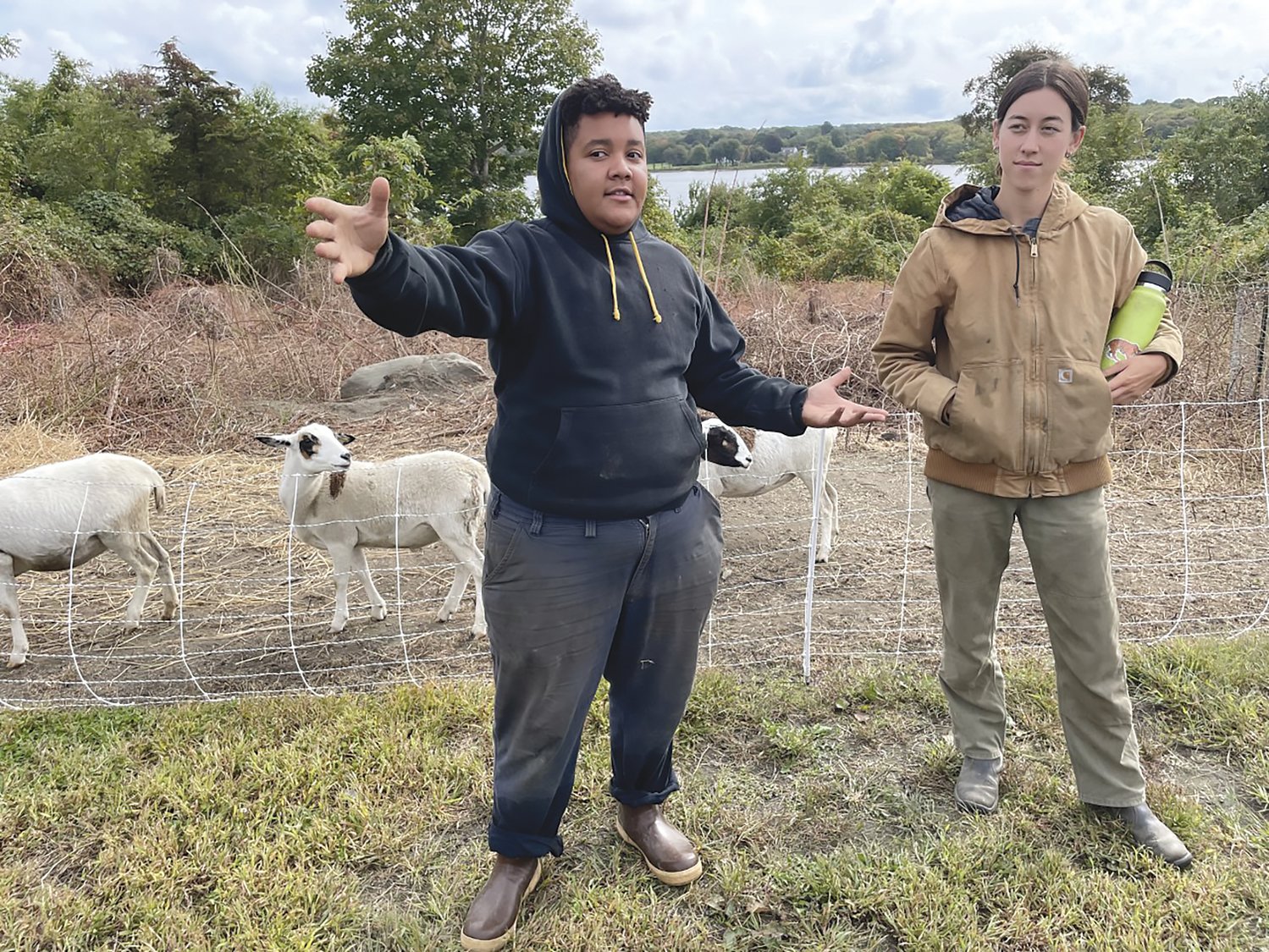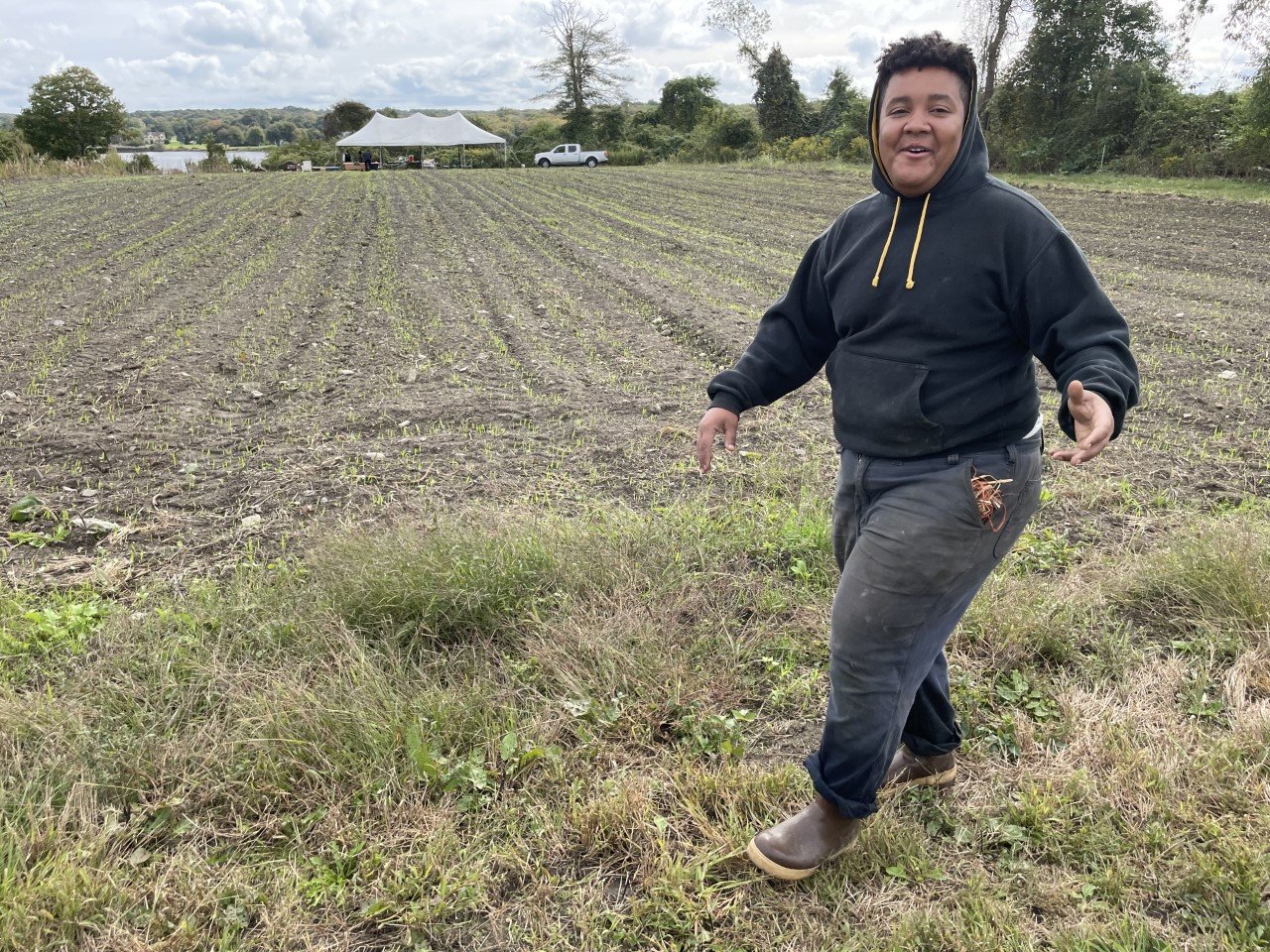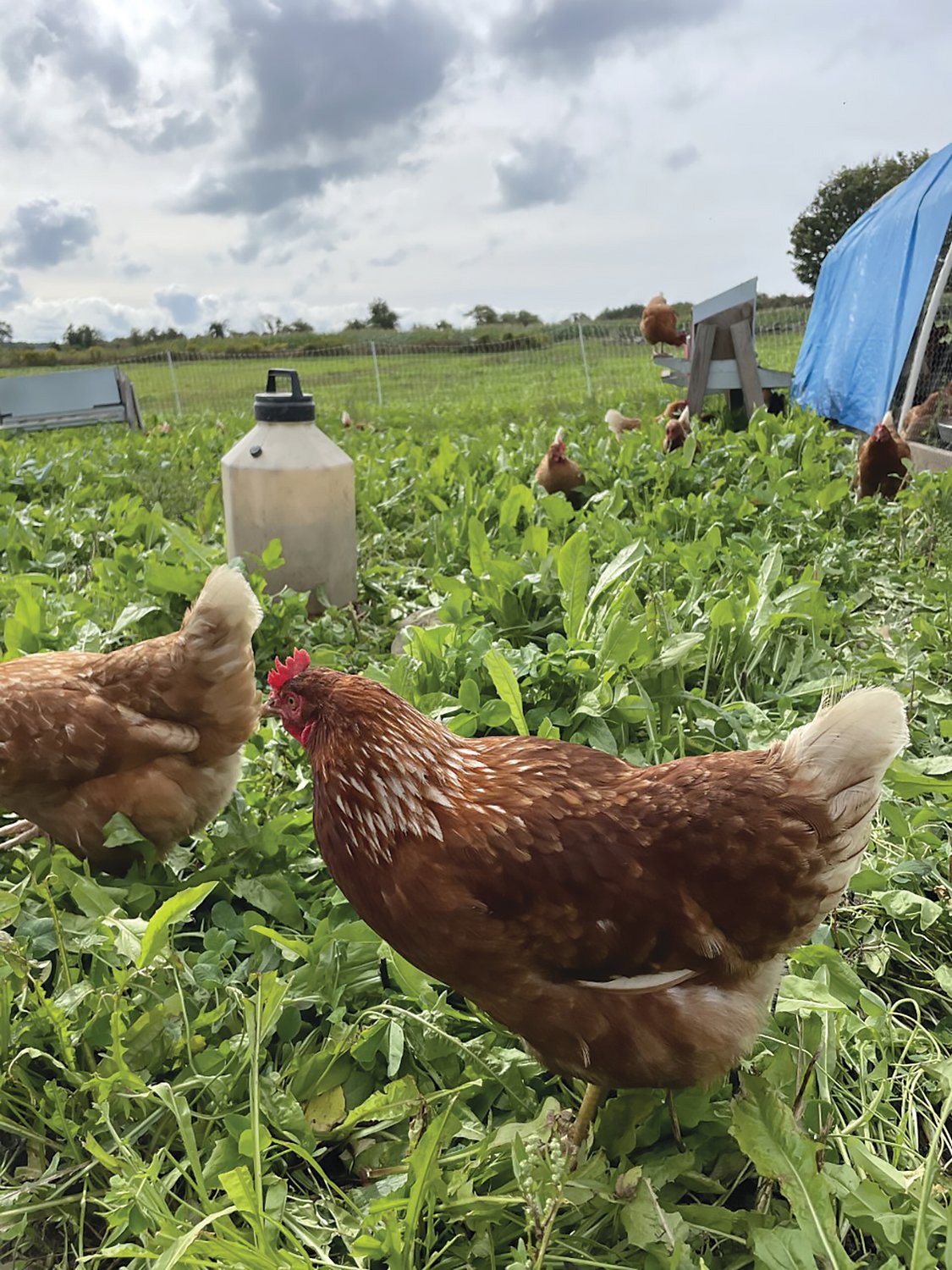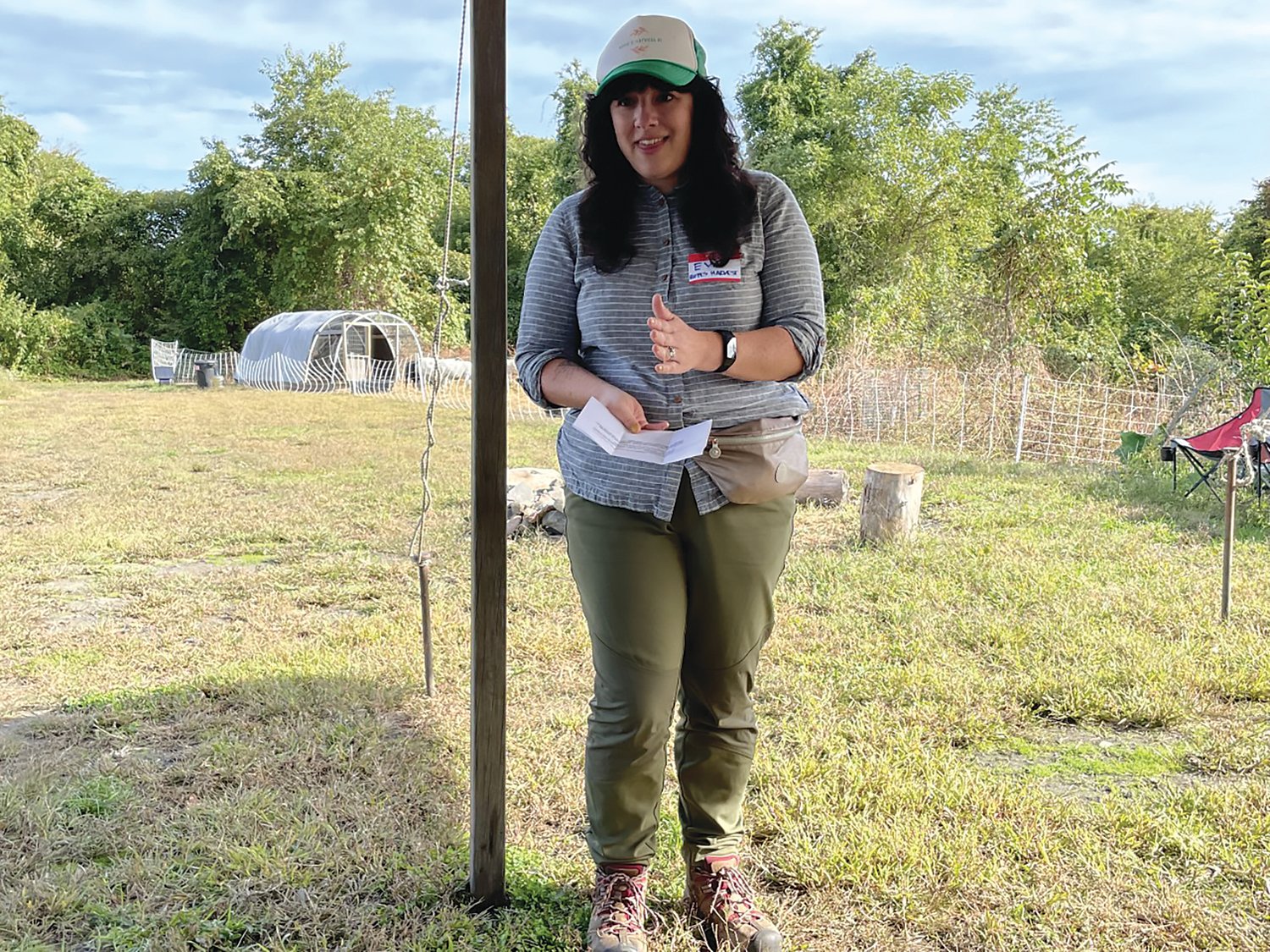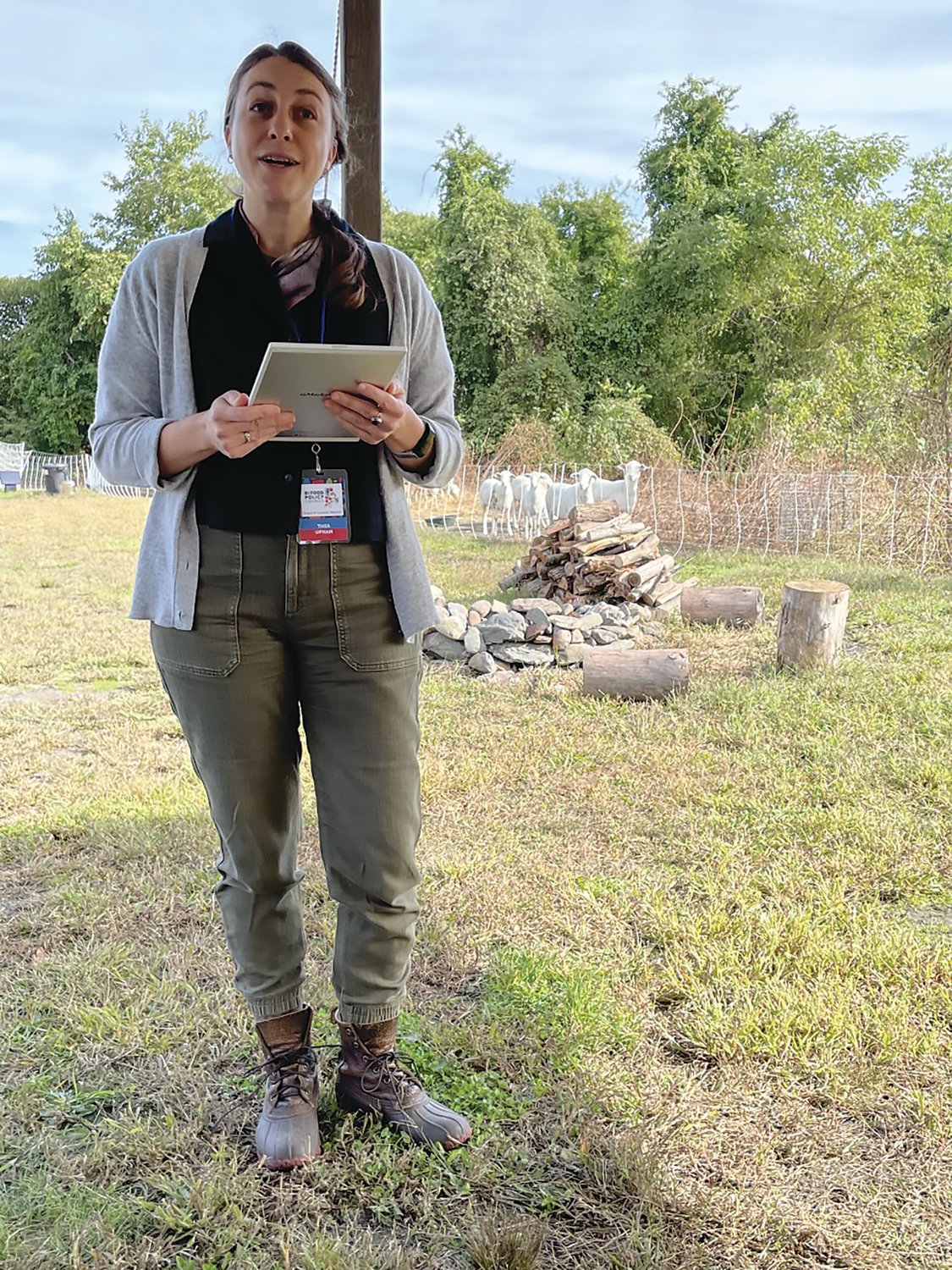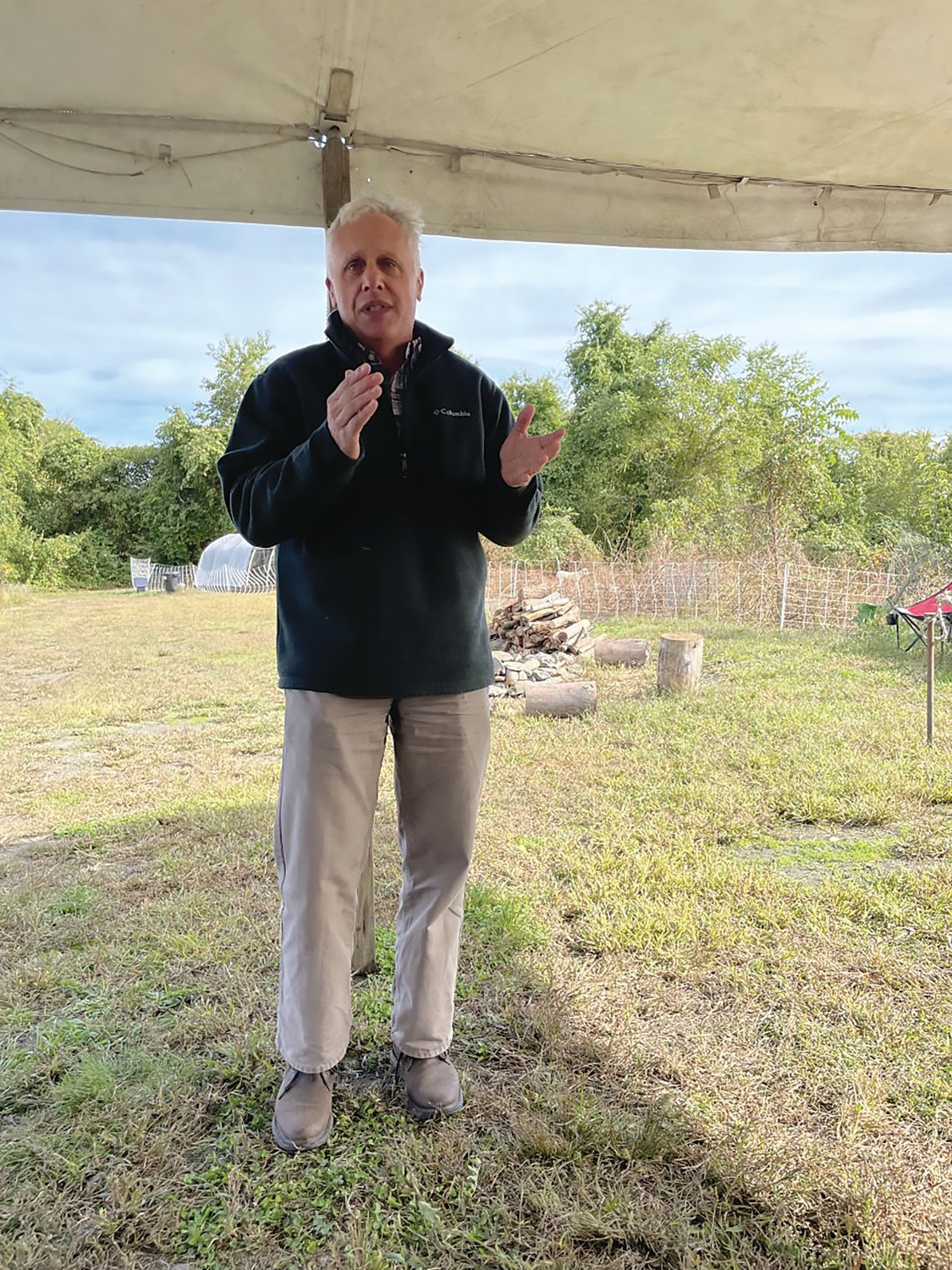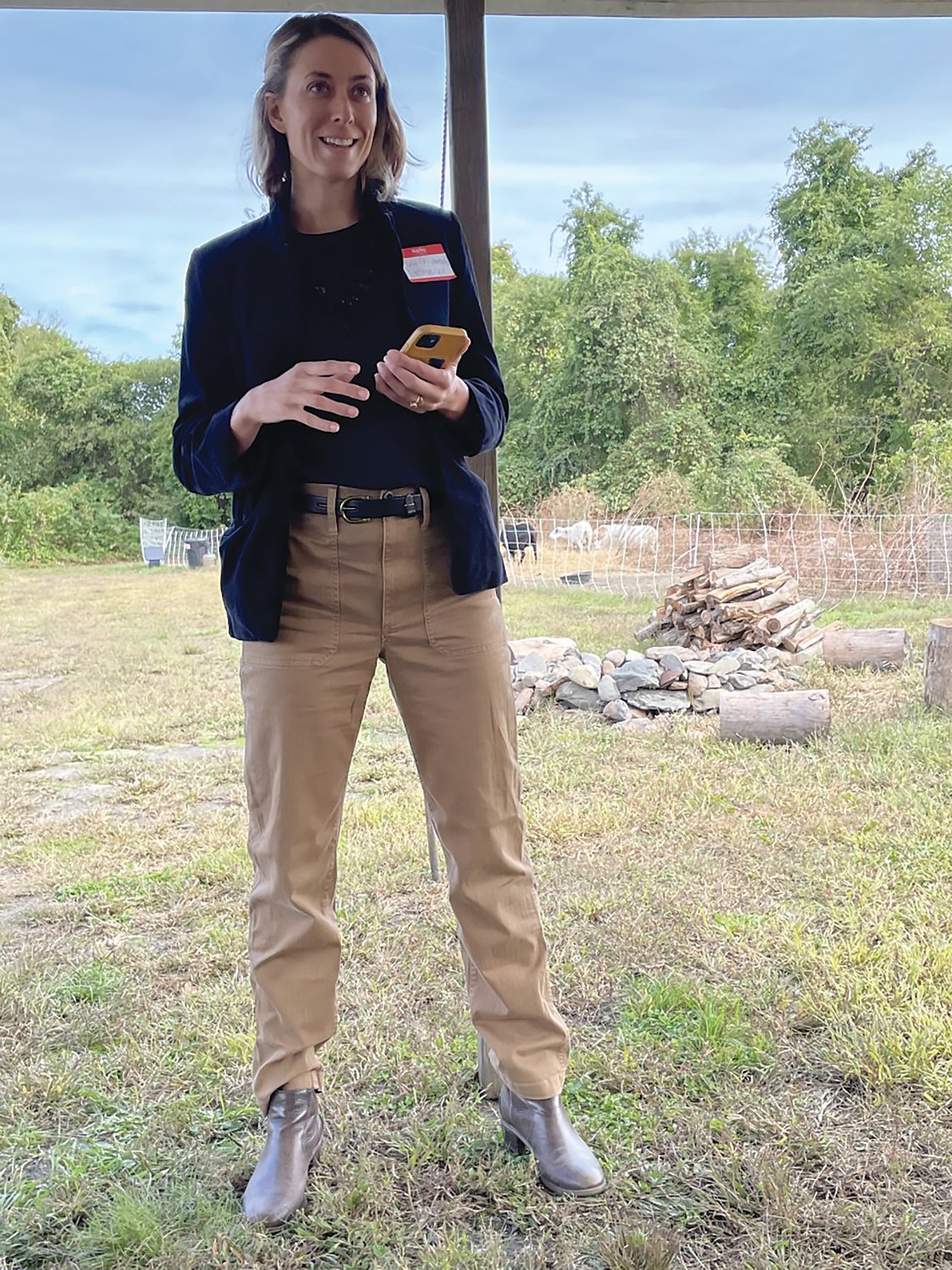- FRIDAY, APRIL 26, 2024
The food network is hard at work
A small group of advocates, influencers and policy-makers spend a lot of time thinking about the region’s farms and food supplies
Research suggests the average person thinks about food 15% of their day. That’s of course their own food, or their family’s food, and those thoughts are typically connected to the rumble …
This item is available in full to subscribers.
Please log in to continue |
Register to post eventsIf you'd like to post an event to our calendar, you can create a free account by clicking here. Note that free accounts do not have access to our subscriber-only content. |
Day pass subscribers
Are you a day pass subscriber who needs to log in? Click here to continue.
The food network is hard at work
A small group of advocates, influencers and policy-makers spend a lot of time thinking about the region’s farms and food supplies
Interested in learning more about the region’s food supply systems, farms, and the many programs working to keep them all sustainable? Check out these sites:
• rifoodcouncil.org
• farmfreshri.org/hopesharvest
• dem.ri.gov/relishrhody
Research suggests the average person thinks about food 15% of their day. That’s of course their own food, or their family’s food, and those thoughts are typically connected to the rumble in the stomach that indicates it’s time to eat.
Few people think about food as an industry — about where it comes from, who grows it, how it’s harvested, how it gets to a store. But there are some who think about the food industry all the time, and a small group of them gathered under a tent in the back field of a Tiverton farm last Friday morning. On a gray day with the first cold winds of fall blowing across a hillside overlooking Nonquit Pond, they took turns giving short speeches about farms, food supplies, food waste, food insecurity and food policies.
Organized by the Rhode Island Food Policy Council, an advocacy group that works to improve all things food in Rhode Island markets, the event was an invitation for lawmakers and media to hear about strengths and opportunities in the local food industry. They talked about how to protect and preserve working farms; how to foster sustainable farming practices in this region; how to reduce waste and get excess food to hungry people; and how to create more opportunities for minorities and disadvantaged people to work in food businesses.
The Food Policy Council came armed with pamphlets and statistics for the small crowd at Movement Ground Farm, located off Puncatest Neck Road. They also came with a message for the lawmakers who attended: Make smart decisions about food, farms and climate change in the future.
Thea Upham, chair of the Food Policy Council, outlined the organization’s four priorities for 2023. They are:
1. Protect and preserve local farms, and provide funding for new farming programs, including urban farms.
2. Divert food from landfills. “Our call is to develop a comprehensive strategy for minimizing and diverting wasted food from businesses going into the landfill,” Upham said. “That includes tax incentives for excess food donation, as well as wider mandates and increased support for residential and commercial organic waste composting.”
3. Ensure food access for those in need. “We need to strengthen and endorse new and sustainable avenues for local farmers, seafood harvesters and food entrepreneurs to easily sell and deliver nutritious, affordable and healthily grown, local food, both to direct consumer and indirect wholesale markets that serve food insecure communities and residents,” Upham said.
4. Support existing food businesses with an array of programs, such as infrastructure, marketing or technical assistance, grants, tax incentives and low-cost loans.
Julia Chang, one of the hosts for the day from Movement Ground Farm, a collaborative farm sustained by both stakeholders and volunteers, gave the crowd a perfect example of infrastructure supporting a local farm. She explained how they received a public grant and used it to buy a potato digger. “I asked our farm team to describe the impact to folks who haven’t worked with a potato digger before, and they said it’s like night and day,” Chang said. “They would literally be out here digging potatoes with their hands right now without that potato digger. So we’re really grateful for the support. It means a lot.”
Two eye-opening statistics framed the morning. First, Rhode Island imports about 95% of the food consumed by its residents. That food is harvested and shipped from around the globe, with obviously high transportation costs embedded in their price. Second, about 1 in 5 Rhode Islanders today worry about access to quality food.
So the audience last Friday talked a lot about how to source more food locally — and how to get it affordably to those who need it. Here are some of the perspectives from those people thinking about food all the time …
Eva Agudelo - Hope’s Harvest
Hope’s Harvest is an organization that rescues food that would otherwise go to waste and gets it to people in need. Since 2018, some 350 volunteers have spent more than 5,000 hours recovering 750,000 pounds of produce. They’ve picked food from 48 different farms and distributed it to 48 different relief agencies. They estimate they’ve rescued more than $1 million of food that would have been thrown away.
Eva Agudelo is the founder and director of the Hope’s Harvest program at Farm Fresh, Rhode Island. “We mobilize volunteers to harvest food that would otherwise be wasted on a farm, and we pack it up and we deliver it to hunger relief agencies all over the state, and that’s actually happening right now with that little white truck in the back corner,” she said, pointing to a field behind the gathered group on Friday morning.
Agudelo’s agency relies on donations, grants and corporate sponsorships, and uses much of that funding to buy excess food from farms. “We have paid out about $350,000 to farmers and food producers throughout the state, specifically for serving the hunger relief market, and we’re really really proud of how we’ve been able to make sure that those businesses are able to sustain themselves.”
She concluded with this: “Unfortunately, I don’t think we’re going to see the end of hunger in Rhode Island anytime soon, which is not great. But we are here to make sure that our Rhode Islanders are getting what they need, and we are here to make sure that we’re also supporting farmers and making sure they have what they need in that process.”
Ken Ayers – RI Division of Agriculture
The director of the state’s agriculture agency thinks a lot about food, and the future. Ken Ayers told the crowd Friday, “I got back late last night from a meeting with my counterparts from 50 states, held in Saratoga Springs, New York. I used to go to those meetings and the South would be thinking about something, the West would be thinking about something, the North would be thinking about something. Now everybody thinks about the same thing — where is our food system going? And what’s the impact of climate change? You can’t go through the pandemic or the hurricane or war without all those things rising to the top.”
Ayers talked about the impact of state funding for farmland protection — literally buying development rights to protect the open space. And he talked about the challenges moving forward. “Going forward, we need to have a broad-based, sustainable, resilient food system that helps us weather all the storms, literally and figuratively, that are coming our way. It’s possible. It can be achieved, but we really need to focus and drill down.”
Julianne Stelmaszyk – R.I. Director of Food Strategy
Most do not know Rhode Island has a Director of Food Strategy. The position was created under Gov. Gina Raimondo’s administration, and it is believed to be one of only two such positions in the country. “Rhode Island is really forward-thinking and innovative in having this type of food systems position working at the state level,” said the current director, Julie Stelmaszyk.
She spoke passionately to the group about the challenges now and in the future.
“Since our division was launched five years ago … we have invested over $20 million in critical food infrastructure, like Farm Fresh Rhode Island, Southside Community Land Trust, Hope & Maine, Gotham Greens and many others, through tax credits and grants. We’ve supported new forms of food production, from indoor agriculture as well as record growth in our aquaculture industry, which has seen 10X growth in the last decade,” she said.
“However, there are still major challenges to achieving our food vision. Nearly one in five Rhode Islanders do not have access to proper food and nutrition. Our farmland in Rhode Island has the highest cost in the country. It is the most expensive. It’s 16,000 an acre. We are heavily reliant on long distance supply chains. We import 90% to 95% of our food from outside of the region. It is not sustainable.”
Stelmaszyk said farmers are more than just employers or food producers, they are also land stewards protecting natural resources.
“So much has happened in the last five years, fundamental changes to how we live, eat, work and even gather,” she said, “yet even with all the progress we’ve made, the climate crisis is upon us. That has been evidently clear in the last summer, where we had drought and a flood within the same week here in Rhode Island. And hunger is still widespread, with over 18% of Rhode Island families lacking sufficient nutrition. It’s far greater for black and LatinX households … We must think beyond our borders and take a more regional perspective to food, to long-term food security and resilience.”
She concluded by saying, “We don’t need new ideas. We need to invest in the things that work.”
Legislators on the farm
Numerous state lawmakers attended the event at Movement Ground Farm last week, led by Sen. Louis DiPalma and Rep. Michelle McGaw, who served as co-hosts for the event. They both spoke about efforts at the Statehouse to support farms and the agencies that bring healthy food to people in need. Rep. Terry Cortvriend and Rep. Liana Cassar were also in attendance, as well as representatives from Sen. Sheldon Whitehouse’s office and Congressman David Cicilline’s office.
Other items that may interest you

